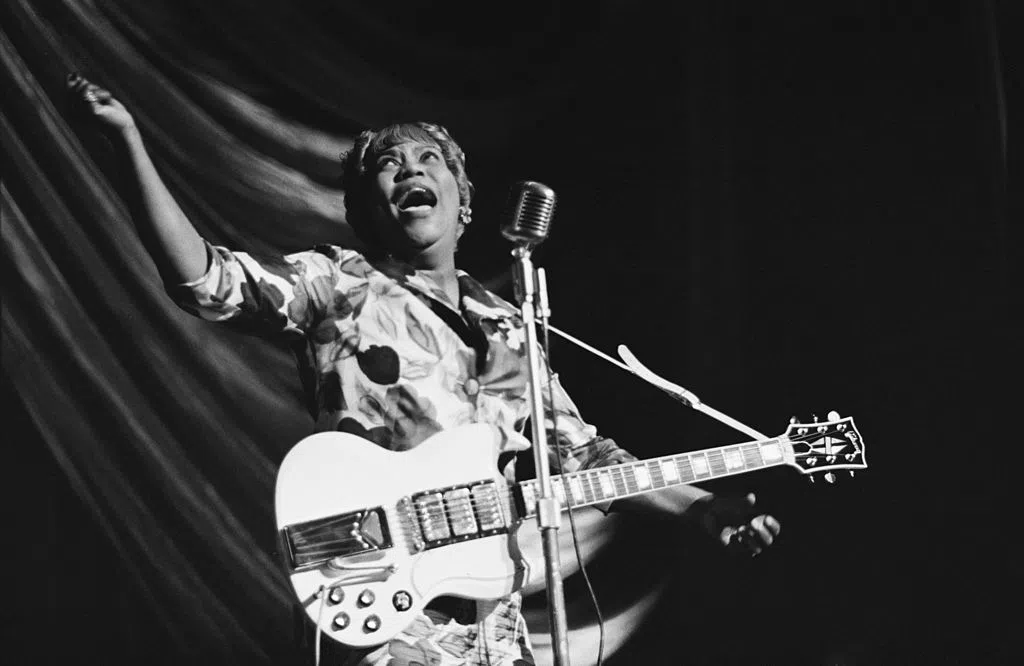Photo by Getty Images
This week for Women’s History Month, we honor “The Godmother of Rock ‘n’ Roll” Sister Rosetta Tharpe.
Tharpe was born Rosetta Nubin in Arkansas in 1915 as a daughter of cotton pickers. With her family’s involvement in their church’s choir, Rosetta naturally began developing her own musical talents and joined a travelling evangelical troupe, singing and playing guitar all over the South at the age of six.






